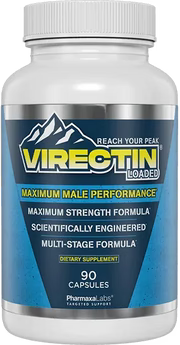When couples embark on the journey to build a family, fertility often takes center stage. Among the various factors influencing male fertility, sperm mobility—or motility—plays a pivotal role. Sperm motility refers to the ability of sperm to move efficiently towards the egg, a crucial step in fertilization. Understanding the causes of reduced sperm mobility and exploring effective strategies to enhance it can empower men to take proactive steps toward improving their fertility. This comprehensive guide explores the intricacies of sperm mobility, shedding light on its causes, the science behind its measurement, and practical methods to enhance it, supported by scientific research and expert insights.
Understanding Sperm Mobility
Sperm mobility is a key parameter assessed during semen analysis, a standard test in male fertility evaluations. It measures the percentage of sperm that exhibit progressive movement—straight or large circles away from the origin—as opposed to non-progressive or immotile sperm. High sperm motility is associated with increased fertility potential, as mobile sperm are more likely to reach and fertilize an egg. Sperm mobility is divided into different categories: progressive motility (rapid and linear movement), non-progressive motility (slow or irregular movement), and immotility (no movement). Each category provides valuable information about sperm health and fertility potential.
Causes of Reduced Sperm Mobility
Several factors can contribute to decreased sperm mobility, ranging from lifestyle choices to underlying medical conditions. Understanding these causes is essential for addressing and improving sperm health.
1. Lifestyle Factors
- Smoking: Tobacco use has been consistently linked to reduced sperm mobility. Chemicals in cigarettes can damage sperm DNA and impair their movement. Smoking affects the overall health of sperm, leading to decreased motility and increased DNA fragmentation, which can hinder fertilization.
- Alcohol Consumption: Excessive alcohol intake can negatively affect sperm production and mobility. Chronic alcohol use may lead to hormonal imbalances that hinder sperm function. Alcohol can also increase the production of reactive oxygen species (ROS), which can damage sperm membranes and reduce motility.
- Heat Exposure: Elevated scrotal temperatures, often caused by frequent use of hot tubs, saunas, or prolonged laptop use on the lap, can impair sperm motility by affecting the testes' optimal temperature for sperm production. Heat stress can lead to decreased sperm production and motility by disrupting the delicate balance required for spermatogenesis.
2. Diet and Nutrition
- Poor Diet: Diets high in processed foods and low in essential nutrients can adversely affect sperm health. Deficiencies in vitamins and minerals, such as zinc and vitamin D, are linked to reduced sperm motility. Antioxidant-rich foods help protect sperm from oxidative damage, maintaining their motility and overall health.
- Obesity: Excess body fat can lead to hormonal imbalances, particularly in testosterone levels, which are crucial for sperm production and mobility. Obesity is associated with increased estrogen levels and decreased testosterone, negatively impacting sperm motility and quality.
3. Medical Conditions
- Varicocele: This condition involves enlarged veins within the scrotum, which can increase scrotal temperature and reduce sperm motility. Varicocele is one of the most common causes of male infertility and can significantly impair sperm quality and movement.
- Infections: Sexually transmitted infections (STIs) and other infections affecting the reproductive system can impair sperm function. Infections can cause inflammation and damage to the reproductive organs, leading to decreased sperm mobility and overall fertility.
- Hormonal Imbalances: Disorders affecting hormone levels, such as hypothyroidism or hyperprolactinemia, can impact sperm motility. Hormones like testosterone and follicle-stimulating hormone (FSH) are essential for maintaining sperm production and mobility.
4. Environmental Exposures
- Toxins and Pollutants: Exposure to environmental toxins like pesticides, heavy metals, and endocrine-disrupting chemicals can damage sperm and reduce their motility. These substances can interfere with hormone function and cause oxidative stress, impairing sperm movement.
- Radiation: High levels of radiation exposure can adversely affect sperm production and mobility. Radiation can cause direct damage to sperm DNA and impair the structural components necessary for motility.
5. Genetic Factors
- Genetic Abnormalities: Certain genetic conditions can impair sperm motility. For instance, mutations in genes responsible for the structure and function of sperm tails can lead to immotile sperm. Genetic disorders like primary ciliary dyskinesia also affect sperm motility by disrupting the flagellar movement.
Scientific Insights into Sperm Mobility
Research into sperm mobility has revealed intricate details about its underlying mechanisms and influencing factors. Sperm motility is primarily driven by the flagellum—a whip-like structure that propels sperm through the reproductive tract. The energy required for this movement is generated through metabolic processes involving mitochondria within the sperm. Mitochondrial function is crucial for providing the necessary ATP (adenosine triphosphate) that powers the flagellar movement, enabling sperm to navigate the female reproductive system effectively.
Studies have shown that oxidative stress, resulting from an imbalance between reactive oxygen species (ROS) and antioxidants, can damage the sperm's DNA, membrane, and motility apparatus. Antioxidants play a protective role by neutralizing ROS, thereby maintaining sperm health and mobility. Excessive ROS can lead to lipid peroxidation of the sperm membrane, impairing its flexibility and the functionality of ion channels essential for motility.
Additionally, the integrity of the sperm's axoneme—the central framework of the flagellum—is critical for effective movement. Structural proteins like dynein and kinesin facilitate the bending and movement of the flagellum. Any disruption in these proteins or their regulatory mechanisms can result in impaired sperm mobility.
Health Claims vs. Reality: Debunking Myths
In the quest to enhance sperm mobility, numerous products and supplements claim to boost fertility. However, it's essential to distinguish between scientifically supported benefits and exaggerated claims.
- Antioxidant Supplements: Vitamins C and E, selenium, and coenzyme Q10 are touted for their antioxidant properties that may improve sperm motility. While some studies support these benefits, results are not universally consistent, and excessive intake can have adverse effects. It's important to approach antioxidant supplementation with a balanced perspective, recognizing both potential benefits and limitations.
- Herbal Remedies: Supplements like maca root, ashwagandha, and ginseng are popularly believed to enhance sperm quality. Limited clinical evidence exists to substantiate these claims, and their efficacy may vary among individuals. Herbal remedies may offer mild benefits, but they should not replace evidence-based treatments.
- Lifestyle Modifications: Unlike supplements, lifestyle changes such as quitting smoking, reducing alcohol intake, and improving diet have robust evidence supporting their positive impact on sperm motility. Adopting healthier habits can lead to significant improvements in sperm mobility and overall reproductive health.
Potential Downsides and Limitations
While the pursuit of improved sperm mobility is important for fertility, certain approaches may have limitations or unintended consequences.
- Overuse of Supplements: High doses of antioxidants can disrupt the natural redox balance, potentially leading to oxidative damage. It's crucial to adhere to recommended dosages and consult healthcare professionals before starting any supplement regimen. Over-supplementation may interfere with the body’s own antioxidant mechanisms, leading to reduced sperm motility instead of improvement.
- Medical Treatments: Surgical interventions for conditions like varicocele carry inherent risks, including infection and scarring. Patients must weigh the potential benefits against the risks in consultation with specialists. Additionally, not all medical treatments guarantee improved sperm mobility, necessitating a personalized approach to treatment.
- Unregulated Products: Many fertility-enhancing products are not regulated by the FDA, leading to concerns about quality, efficacy, and safety. Consumers should exercise caution and seek products with reputable certifications. The lack of regulation means there is no guarantee of the active ingredients or their concentrations, potentially undermining efforts to improve sperm mobility.
Improving Sperm Mobility: Evidence-Based Strategies
Enhancing sperm motility involves a multifaceted approach that encompasses lifestyle modifications, dietary adjustments, medical interventions, and, in some cases, supplements. Here's a closer look at effective strategies backed by scientific research.
1. Optimize Diet and Nutrition
- Balanced Diet: Incorporate a variety of fruits, vegetables, whole grains, lean proteins, and healthy fats. Foods rich in antioxidants, such as berries, nuts, and leafy greens, help combat oxidative stress. A diet high in antioxidants can protect sperm from oxidative damage, thereby improving sperm mobility.
- Essential Nutrients: Ensure adequate intake of zinc, selenium, vitamin D, and folate. These nutrients are critical for sperm production and motility. Foods like oysters, Brazil nuts, fortified cereals, and legumes are excellent sources. Zinc, for example, plays a role in testosterone production and sperm membrane integrity, both crucial for sperm mobility.
- Omega-3 Fatty Acids: Found in fish, flaxseeds, and walnuts, omega-3s support the fluidity of sperm membranes, enhancing motility. Omega-3 fatty acids also have anti-inflammatory properties, which can improve overall sperm health.
- Amino Acids: Amino acids like L-carnitine and L-arginine are important for sperm motility. They play roles in energy production and the synthesis of nitric oxide, which can enhance sperm movement.
2. Maintain a Healthy Lifestyle
- Regular Exercise: Moderate physical activity improves overall health and hormonal balance, positively impacting sperm quality. However, excessive exercise, especially endurance sports, can have the opposite effect by increasing oxidative stress. Balance is key; incorporating activities like yoga or light jogging can enhance sperm mobility without causing undue stress on the body.
- Weight Management: Achieving and maintaining a healthy weight helps regulate hormone levels and reduces the risk of conditions like varicocele that impair sperm motility. Weight loss in overweight individuals can lead to increased testosterone levels and improved sperm quality.
- Avoid Smoking and Limit Alcohol: Eliminating tobacco use and moderating alcohol consumption can significantly improve sperm motility and overall reproductive health. Smoking cessation leads to reduced oxidative stress and inflammation, promoting better sperm movement.
- Regular Sleep: Ensuring adequate and quality sleep supports hormonal balance and overall health, which are essential for maintaining optimal sperm mobility.
3. Reduce Environmental Exposures
- Limit Toxin Exposure: Minimize contact with pesticides, heavy metals, and other environmental toxins by using protective measures and choosing organic or environmentally friendly products when possible. Reducing exposure to these toxins can prevent oxidative damage to sperm, enhancing motility.
- Protect Against Radiation: Avoid unnecessary exposure to radiation sources, including excessive use of electronic devices that generate heat, which can elevate scrotal temperatures. Using cooling pads or avoiding prolonged use of laptops on the lap can help maintain optimal scrotal temperature.
- Use Protective Gear: When exposed to industrial chemicals or radiation in occupational settings, use appropriate protective gear to shield against harmful exposures that could affect sperm mobility.
4. Medical Interventions
- Address Underlying Medical Conditions: Conditions like varicocele, hormonal imbalances, and infections require prompt medical attention. Treatments may include surgery, hormone therapy, or antibiotics, depending on the cause. Successful treatment of these conditions can lead to significant improvements in sperm motility.
- Assisted Reproductive Technologies (ART): In cases where natural improvement of sperm motility is insufficient, ART methods like in vitro fertilization (IVF) or intracytoplasmic sperm injection (ICSI) can aid in achieving pregnancy. These technologies can bypass some of the challenges associated with low sperm mobility.
- Hormone Therapy: For men with hormonal imbalances, hormone therapy can correct deficiencies or excesses, thereby improving sperm motility. This may involve testosterone replacement or medications that regulate other hormone levels.
5. Supplements and Natural Remedies
- Antioxidant Supplements: Supplements containing vitamins C and E, selenium, and coenzyme Q10 have been shown to improve sperm motility in some studies. However, it's essential to use these supplements under medical supervision. Combining antioxidants with a balanced diet can synergistically enhance sperm health.
- Herbal Supplements: While some evidence supports the use of herbs like ashwagandha and maca for enhancing sperm quality, more rigorous clinical trials are needed to confirm their efficacy. These herbs may offer mild benefits when included as part of a comprehensive approach to improving sperm motility.
- Natural Oils: Oils such as flaxseed oil and evening primrose oil may support sperm health and motility by providing essential fatty acids that benefit sperm membrane fluidity.
Practical Tips for Enhancing Sperm Mobility
For men looking to improve their sperm motility, integrating the following practical tips into daily routines can make a significant difference:
- Balanced Nutrition: Plan meals that include a variety of nutrient-dense foods. Consider consulting a nutritionist to tailor a diet that supports reproductive health. Incorporating a mix of macronutrients and micronutrients ensures that sperm have the necessary components for optimal mobility.
- Regular Health Check-ups: Routine medical examinations can help detect and address underlying health issues that may affect sperm motility. Early detection and treatment of conditions like varicocele or hormonal imbalances can prevent long-term fertility issues.
- Stress Management: Chronic stress can negatively impact hormonal balance and sperm health. Practices such as meditation, yoga, and adequate sleep can help manage stress levels. Reducing stress not only improves overall well-being but also enhances sperm mobility by maintaining hormonal equilibrium.
- Hydration: Staying well-hydrated supports overall health and optimal functioning of bodily systems, including the reproductive system. Proper hydration ensures that sperm are transported efficiently through the reproductive tract.
- Avoiding Overheating: Wear loose-fitting underwear and avoid prolonged exposure to hot environments to maintain optimal scrotal temperature. Keeping the testes cool is essential for maintaining sperm motility and preventing heat-induced damage.
- Limit Exposure to Electromagnetic Fields (EMFs): Reduce the use of cell phones and other electronic devices near the reproductive organs, as EMFs may negatively affect sperm mobility.
- Regular Ejaculation: Maintaining a regular ejaculation schedule can help ensure that sperm are fresh and motile, rather than being stored for extended periods, which can sometimes lead to decreased motility.
Choosing the Right Products and Treatments
When exploring products and treatments to enhance sperm motility, consider the following guidelines:
- Research and Reviews: Look for products with positive reviews and evidence-based claims. Avoid those that make exaggerated promises without scientific backing. Reading testimonials and clinical studies can provide insights into the product’s effectiveness.
- Consult Healthcare Professionals: Before starting any supplement or treatment, seek advice from a healthcare provider to ensure it's appropriate for your specific situation. A medical professional can provide personalized recommendations based on individual health profiles.
- Quality Assurance: Choose supplements from reputable brands that adhere to quality standards and third-party testing to ensure purity and potency. Certifications like Good Manufacturing Practices (GMP) can indicate higher quality products.
- Personalization: Recognize that what works for one individual may not work for another. Personalized approaches, possibly involving genetic testing or hormone profiling, can yield better results. Tailoring treatments to individual needs can optimize outcomes for improving sperm mobility.
- Avoid Unverified Claims: Be skeptical of products that guarantee results without scientific evidence. Effective sperm mobility improvement often requires a combination of strategies rather than a single product or treatment.
Conclusion
Sperm mobility is a critical factor in male fertility, influencing the likelihood of successful fertilization. Understanding the myriad causes of reduced sperm mobility, from lifestyle factors and diet to medical conditions and environmental exposures, is the first step toward addressing the issue. By adopting evidence-based strategies such as optimizing nutrition, maintaining a healthy lifestyle, reducing toxin exposure, and seeking appropriate medical interventions, men can significantly enhance their sperm mobility and overall reproductive health.
While supplements and natural remedies offer potential benefits, they should be used judiciously and under professional guidance to avoid unintended consequences. Overreliance on unregulated products can lead to ineffective or even harmful results. A holistic approach that combines healthy living with informed medical care provides the best chance for improving sperm motility and achieving fertility goals. This approach not only enhances sperm mobility but also contributes to overall well-being.
Armed with knowledge and practical strategies, men can take proactive steps to support their reproductive health and embark on their journey to parenthood with confidence. Focusing on sperm mobility as part of a comprehensive fertility plan can lead to more successful outcomes and a healthier reproductive system. Remember, improving sperm mobility is not a one-time effort but a continuous process that involves making informed choices and maintaining healthy habits over time.
More stories

Fueling Fertility: How Diet Influences Male Sexual Health





